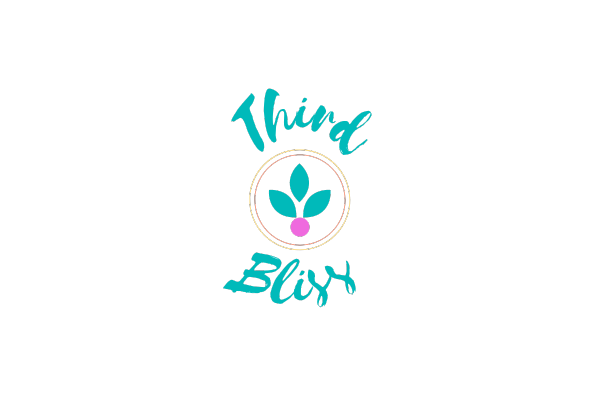DECLUTTERING YOUR MIND.
A cluttered mind is not exactly a bad thing. It becomes a problem when it negatively affects your physical & emotional health, thought patterns, and daily activities. Learn what mental clutter is, what causes it, how it can affect your health, and 6 simple ways to declutter your mind.

WHAT IS MENTAL CLUTTER?
Mental clutter can be anything that impedes with your ability to think or act clearly. Just like physical clutter, mental clutter needs to be dealt with before it becomes overwhelming.
We live in a world where access to information anywhere in the world is 24/7, multi-tasking is the norm, and being busy is a badge of honor. It is no wonder that our brains have become full of unnecessary clutter.
WHAT CAUSES MENTAL CLUTTER?
Your brain processes thousands of thoughts and stimuli each day. It is both a powerful and mysterious ability that science has only just begun to understand.
Unlike physical clutter that we can easily clean away, mental clutter is trickier to clear up. This is because you can’t stop your stream of thoughts.
Have you ever tried to stop thinking about something? In the first few seconds, you’re successful, and your mind is free of it. Then the thought comes back and you try not to think about it.
The harder you try to stop thinking, the more you stress about it, the more your mind wants to focus on it. This triggers a cycle of negative thoughts, that sets off unpleasant emotions, and repeats itself in an endless loop. The thoughts become anchored in your body and mind because now emotions are attached to them.
HOW MENTAL CLUTTER CAN AFFECT YOUR HEALTH.
When you experience a negative emotion, your body will also react to it. The amygdala, which processes emotions in the brain, sends messages to release hormones in the body in response to the stimuli.
If you have an unpleasant emotion like fear, hormones like adrenaline and cortisol are released, in order to get ready to fight or flight. This shunts blood from certain parts of the body, like the digestive system, to other parts of the body, like the heart and muscles.
Your brain adapted this ability to survive in the stone age, but it never grew out of it. In the modern age, fear comes mostly in the form of perceived rather than imminent danger. This leads to stress and anxiety when your mind is not able to dispose of the unwanted clutter.
HOW TO DECLUTTER YOUR MIND.
Fortunately, you don’t have to be a victim of mind clutter. There are ways to overcome it so your thoughts flow instead of stagnate. With practice, you’ll learn to recognize when your stream of thoughts affect your physical and mental health. Then you’ll be able to release your mental clutter with ease.
6 SIMPLE WAYS TO DECLUTTER YOUR MIND.
BREATHE
Proper breathing is a skill that is simple to learn and can be done anywhere. You can start by practicing in a quiet place where you can sit or lie down. Slowly breathe in and notice the air entering into your body. Take in as much air as you comfortably can, then breathe out slowly, while noticing the air going out. Repeat as much as you need to.
This helps when you are feeling anxious and can’t seem to focus on anything but your mind clutter. Slow, deep breathing prevents you from hyperventilating and feeling out of control. The more you practice, the better you will get at this skill, and the more adept you will become at decluttering your mind.
LET GO.
Surrender to the mental clutter and accept what is. Trying to block your thoughts may cause more anxiety. It would be like trying to swim up a waterfall. You’ll be wasting too much precious energy. Instead, letting go will allow your thoughts to float along rather than fight to control them.
I love to play the song “Let it be” by the Beatles in my head when I feel like my mind is racing. It redirects my focus and allows me to release the energy that binds me to the mind clutter. You don’t have to sing the song in your head, but simply repeating “let it go” to yourself may help to release unwanted thoughts.
WALK.
Walking is effective when you’re feeling especially anxious from mental clutter and are unable to sit or lie down. This simple exercise can be done indoors or outdoors, depending on the weather or your preference. You don’t need anything but your attention.
Start slowly and pay attention to your feet and the ground beneath them. Notice how the ground feels and continue to focus on how you are walking. Keep on walking until your anxiety level or unpleasant emotion decreases enough so you can focus. If your mind races, continue to bring your attention back to your walking.
This exercise not only helps you clear the clutter from your brain, but it is also good for you. Keep up this practice as a way to clear your mind or when you need a buoy to save you from a riptide of turbulent thoughts.
SLOW DOWN.
Instead of trying to figure out how to declutter your mind, try to slow down instead. When something is bothering us, the first thing we want to do is to get rid of it as fast as possible.
We fill our heads with more clutter to find ways to dispose of the offending clutter. I used to think that every problem I had, needed to be solved right away, or else I’d end up suffering even more later on. While this may be true for certain things, it’s not always the case for others.
Sometimes you just need to physically slow down so that the thoughts galloping around your mind can slow down as well. This gives your brain some time to naturally reduce the mental clutter. When your head has more room, you might have an easier time finding the answer you were looking for.
PRIORITIZE
You need to be clear on what you want if you wish to declutter your mind. Make a list of the top 3 most important things to you right now. Place the most important one at the top of the list. Is it money, health, or family?
Let’s say health is the most important thing to you right now. Under this category, write down what you need to do so you can attain it. Here is an example:
Get 8 hours of sleep each night.
Exercise every morning for 30 minutes.
Eat fruits and vegetables with each meal.
Do this for the other 2 categories. When you know what you want to achieve, you will be able to focus on what is most important to help reduce your mental clutter.
SAY NO.
After you get clear on what you want, you can start to put up boundaries to prevent new clutter from sneaking into your brain.
Saying yes when you really mean no is detrimental not only to you, but to the other person as well. You might develop resentment, when you commit to something you didn’t want to, towards the other person. That negative energy serves no one.
On the other hand, if you say no, you might be afraid to upset the other person. When you say no, you will probably feel bad at first, but you won’t have that negative energy hanging around you. Saying no means clearing unnecessary clutter from your life and saying yes to what matters most to you.
BE STILL.
Stillness can come in the form of meditation, or sitting quietly, away from distraction. If your mental clutter is making you feel very anxious, try walking first, or some sort of activity that gets you moving.
When you feel calmer, find a quiet place where you won’t be disturbed. Then sit still in a comfortable chair or lie down. Give yourself at least 5 minutes of stillness. With practice, you’ll be able to sit for longer periods of time, which will help to reduce the clutter in your mind.
Stillness is not always easy. I used to think that sitting down and doing nothing was a waste of time. Now I know that I was just trying to avoid confronting the chaos in my mind. What I didn’t realize was that the mental clutter was really a signal from within to just be still.
Mental clutter is problematic when it inhibits your ability to think clearly. It can also affect your health if negative emotions are also attached to your thoughts. Fortunately, there are ways to declutter your mind that are simple and effective. With time, you’ll be able to clear the blockages so you can have greater clarity, purpose and peace of mind.
I hope you found these tips to be helpful. What do you do to declutter your mind? Please leave me a comment, question or feedback.

